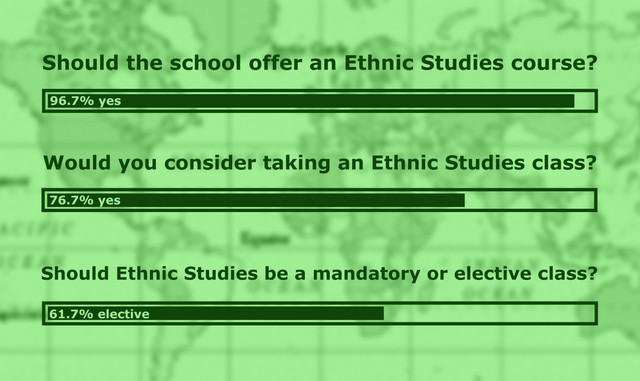Ethnic studies raises debate
Throughout the past year, ethnic studies have begun to be included in high school and college curriculums. Although the introduction of such a class has often been met with criticism, several Diamond Bar High School Students are open to the idea of having such a curriculum available at DBHS if the school were to offer it.
Ethnic studies teaches students about the histories, contributions and struggles of marginalized Americans throughout history. Last year, California required the Cal State University system to include ethinic studies as a mandatory course.
Earlier this month, Los Alamitos Unified School District, located in Orange county, decided to approve ethnic studies as a required course for high school students. In addition, the Los Angeles Unified Board of Education aims to make ethinic studies a graduation requirement by the 2023-2024 school year. Those against the establishment of the course claim it may produce anti-white rhetoric, with opponents, in an open letter to the Los Alamitos community, stating that the class will “[teach] children America is based on white supremacy and that white people are racists.”
On the other hand, many Brahmas are on board with the course, like junior Hilary Wang, who thinks an ethnic studies class would positively impact students since it offers them a wider perspective of American history. Wang said she disagrees with the claim that the class will promote anti-white rhetoric since the course is just teaching students about history through the eyes of people of color.
“If learning about regular history courses like European History or U.S. History isn’t labeled as anti-POC when students learn of the horrible ways white people have oppressed people of color, I don’t see how others can call this informative course ‘anti-white,’” she said.
Although Wang also supports the idea of implementing ethnic studies into Walnut Valley Unified School District curriculum, she said she would prefer the class to be an elective instead of a mandatory class.
“While I believe that courses like [ethnic studies] serve a purpose in helping others understand the cultures and contributions of people of color, others may not find the subject interesting nor important to them,” Wang said via Instagram.
Junior Daniel Zoubstov shares a similar sentiment to Wang’s, adding that the class could potentially fuel reductive discourse in discussions about race since it may cause students to form one-sided opinions.
“I think this class may [be] a bit of an eye opener for some, but its impact will also be a bit negative due to a radicalized split in our youth and may possibly cause a stronger split,” Zoubstov said. “Introducing such classes for people at a point in their life when they start forming their opinions can cause them to see things more one sided than someone who has a different view.”
Alternatively, sophomore Olivia James said she’d want the class to be an elective in high school but a mandatory class for all college students. James argued that the class would provide equal attention to ethnic backgrounds as it does for white backgrounds.
“[The class] will make students see that ehtnic people have just as much importance and history as white people,” James said via Instagram. “I think… ethnic students will feel heard and all students will have a huge learning opportunity.”
Your donation will support the student journalists of Diamond Bar High School. Your contribution will allow us to purchase equipment and cover our annual website hosting costs.



